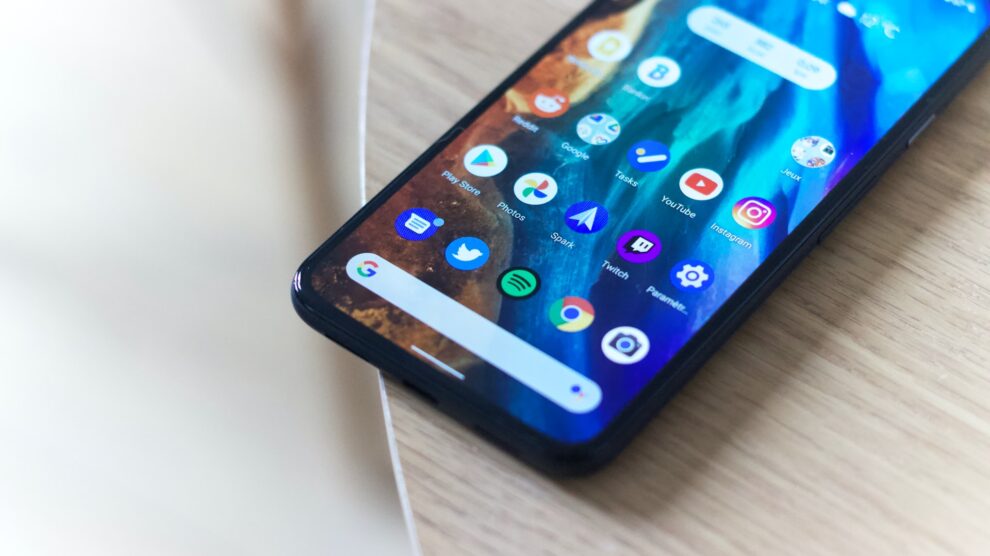While computers and laptops were at risk of getting hacked, attackers now have a new target of interest. Since mobile phones are more commonly used, much personal information is clustered into one tiny frame. It makes your phone a gold mine for hackers!
It is also why mobile phones have become a new target for hackers. In this blog, we will cover five ways to protect your mobile devices against these exploitations so that your sensitive information is safe on your phone. Let’s get started:
Why Are Hackers Targeting Mobile Phones?
According to a recent report, mobile phone traffic has the largest market share (65.57% of all mobile traffic). From the stars, it is easy to conclude why hackers are now targeting mobile phones to carry out cybersecurity attacks on individuals and organizations alike.
To Steal Credentials
Stealing passwords is a fool-proof way to gain access to a corporate network. Hackers often use phishing attacks to get sensitive information like credentials, credit card information, etc. And since most people now use their phones to manage emails, hackers find it easier to exploit those.
To Obtain Organizational Data
Around 40% of small businesses reported data loss due to cyberattacks in a report published in May 2023. And since a significant part of office work is done through mobile phones, it is easier for hackers to target these devices and gain sensitive operational data.
To Spy
A mobile phone can be used for spying if it gets compromised by a hacker. Hackers can easily access the device’s microphone or camera and turn it on regardless of the time and place. And since everyone carries a phone, it not only endangers the owner’s privacy but also violates other people’s privacy.
To Deliver Malware
It is also common for hackers to exploit mobile phones to deliver malware. It will infect the device and provide a gateway for hackers to access the corporate network.
How Can Your Phone Get Hacked?
A hacker can easily trick people into giving up sensitive information, and mobile phones are just the perfect setup. Here are a few ways your phone can get hacked.
Phishing
Hackers commonly use phishing attacks (via email or text) to compromise user credentials. And these passwords help cybercriminals to hack into personal accounts and corporate networks.
Tracking Software
Hackers use keyloggers and spyware to monitor keystrokes or to record general device activity. It is a common way hackers steal personal data using mobile phones.
Using Bluetooth & Public WiFi
Public WiFi and unknown Bluetooth connections are highly insecure and are easier for hackers to intercept.
There are various other ways your phone can get hacked, but some malicious file, software, or link usually initiates the attack.
Common Signs that Indicate Your Phone Is Hacked
Here are some common tell-tale signs to identify phone hacking:
- Excessive pop-ups can indicate an adware infection, and clicking on them may complicate things further.
- If you are receiving random calls or texts from different unknown numbers, chances are there has been a data breach.
- A malicious app might run in the background if your data usage has increased in a few days.
- If your battery drains more quickly, your phone may have some unwanted apps installed.
- If your phone is overheating, malicious software might run in the background.
- Suspicious phone performance can also indicate hacking attempts.
- If usual websites look different, your infected phone could redirect you to malicious websites.
- Unusually high phone bills can indicate that your phone is hacked.
- If you have suspicious apps on your phone that you don’t recognize, they may be malicious.
5 Ways You Can Protect Your Phone from Getting Hacked
1. Use Strong Passwords
Using complicated sequences and passphrases is better than using simple passwords. The more difficult it is to break a password, the more secure your data is. Using password managers is also a fool-proof way to create, store and manage your credentials. You can also use 2FA (two-factor authentication) for added security.
2. Install Updates
You must keep your mobile phone up-to-date by installing software updates, patches, and bug fixes. This way, you can ensure that there are no vulnerable spots in your device that can be exploited or hacked.
3. Use Antivirus Software
You can only do so much alone when protecting your mobile phone. However, antivirus software can regularly scan your mobile phone to detect and remove malicious software, offering real-time protection.
4. Clear Cookies and Browsing History
Deleting your browsing history and cookies can reduce your digital trail. It ensures that your personal data, preferences, and other sensitive information do not fall into the hands of vicious hackers.
5. Use a VPN
A virtual private network (VPN) protects your network security. A reliable VPN encrypts your network traffic and provides you with complete anonymity, even if you are using public WiFi.
Besides this, one must practice healthy browsing habits. Clicking suspicious links and downloading software from unverified sources is a big NO. Turning off your WiFi and Bluetooth (when not in use) is also commonly recommended. And not leaving your phone unattended always helps. For security reasons, try to use VPN for TextNow for secure calling or texting purpose.
What to do if your phone gets hacked?
Here are some measures you can take if you suspect that your phone is hacked:
- Delete any (suspicious) app you do not recognize.
- Block excessive unrecognized calls and report them as spam.
- Cancel subscriptions if your bill is unusually high.
- Run a scan using some anti-malware tool
- Back up your data and restore your phone to its factory settings.
- Reset all your passwords (account credentials and phone passcode)
- Inform your friends and service provider.
Bottom-line
All in all, hacking mobile phones has become more convenient for cybercriminals, and the increasing use of such devices is only fueling this wave. However, with some basic security measures, you can ensure that your mobile phone is protected against such exploitations and that your data is safe against breaches and hacking attempts.





